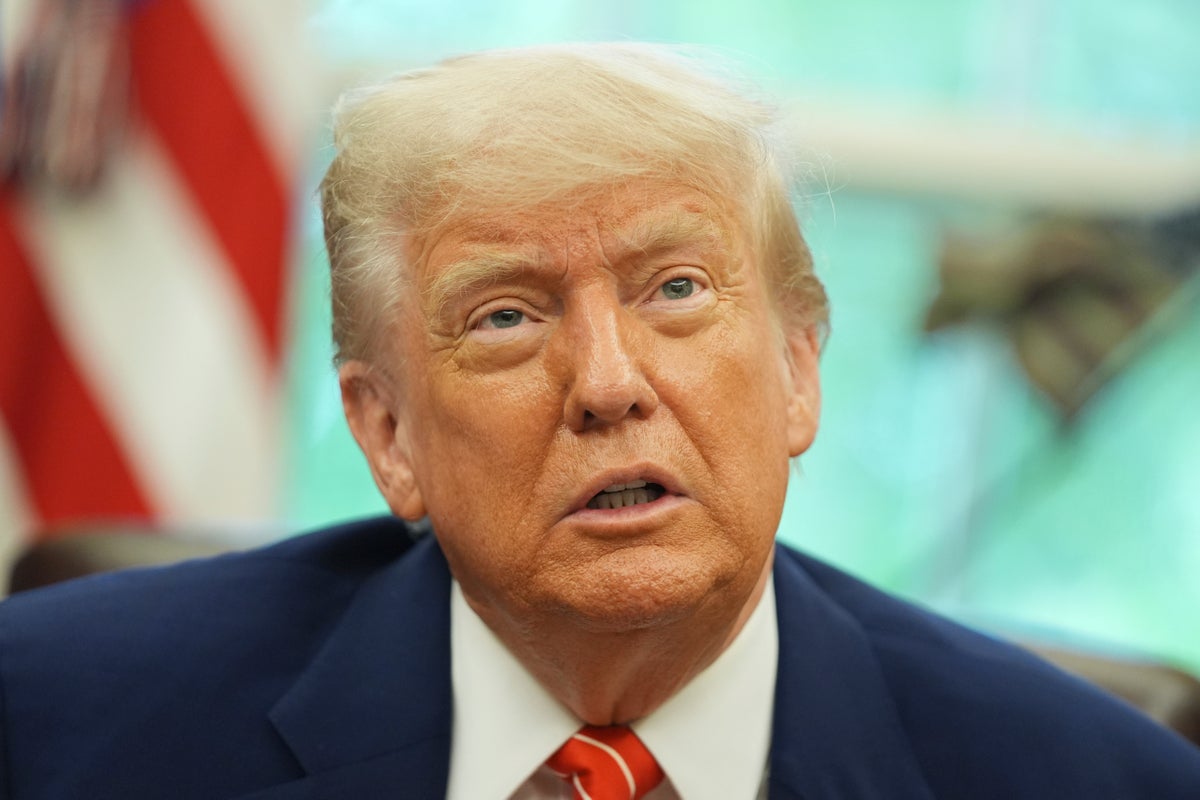The UK is facing a crisis in the war against misinformation emboldened by Donald Trump’s scrapping of protections in the name of free speech, it has been warned.
Fact-checking charity Full Fact said the shift in US politics was having a “chaotic impact” on the information environment, with political shocks from Washington also presenting a direct challenge to Europe.
With the UK now facing an unprecedented volume of misinformation shared online, the charity is urgently calling on the Labour government to resist pressure from the US, and do more to protect the public.
On taking to office for a second term, Mr Trump signed an executive order aimed at “restoring freedom of speech and ending censorship”, with the president taking aim at fact-checking on social media platforms.
In a move Full Fact suspect to be an attempt to “curry political favour”, Meta abandoned its use of independent fact checkers on Facebook and Instagram in the US, replacing them with a X-style “community notes”. There are now fears it will be rolled out globally.
Then in February, US vice-president JD Vance delivered an explosive speech at the Munich Security Conference, accusing EU leaders of using “ugly Soviet-era words like misinformation” to hide “entrenched interest”, further heightening concerns, the charity said.
And last month, the US National Science Foundation ended grants to researchers studying misinformation.
In its annual report for 2025, Full Fact said: “The beginning of president Trump’s second term has continued to have a chaotic impact on the information environment, and the dust is unlikely to settle soon.
“The early embrace of free speech absolutism and anti-censorship rhetoric has focused even greater attention on anti-trust hearings as leading tech executives rapidly try to embrace a new reality.
“There has also been a direct challenge to Europe. Vance’s remarks, dismissing concerns about misinformation as “ugly Soviet-era words,” and asserting that if democracy can be undermined by a few hundred thousand dollars of foreign digital advertising, it wasn’t very strong to begin with, revealed a certain contempt for old allies.
“But his words also effectively recalibrated the acceptable terminology for platforms and suggested the responsibility for addressing coordinated information interference rests solely with governments, rather than with the platforms themselves.”
The charity said fact-checking on media platforms was crucial to protecting users from false or misleading information, and called on Meta to reverse its decision in the US. It also called on the Labour government and regulator Ofcom to do more to hold the platforms to account.
In highlighting the dangers, the authors noted last summer’s race riots, when a false identity of the stabbing suspect in the killing of three girls at a Taylor Swift-themed dance class in Southport was shared.
“The riots following the Southport stabbings were a stark illustration of how rapidly misinformation can spread and escalate when left unchecked by regulation that is unfit for purpose, and by limited platform oversight,” said the report.
Full Fact said tech companies should have acted with more urgency and said the public unrest showed up the limitations of the Online Safety Act.
The legislation outlaws the intentional sending of false information that causes harm. But in practice, the charity said, it was difficult to prove intent to cause harm and prior knowledge the information sent was false.
The report highlighted the case of Bernadette Spofforth, who faced no further court action due to insufficient evidence after allegedly sharing a false name of the Southport suspect.
Full Fact also raised concern over billionaire Elon Musk’s use of social media. It said the Tesla CEO “became almost obsessively active” in commenting on UK politics earlier this year, “often amplifying conspiracy theories and far-right propaganda”.
Labour’s safeguarding minister Jess Phillips faced a deluge of hate from Mr Musk, who accused her of being a “rape genocide apologist” after Labour’s decision to decline a Whitehall-led inquiry into child sexual abuse in Oldham.
“When individuals with enormous power abuse their position and spread false or misleading information, we should all be concerned,” said Full Fact.
In its report, the charity also urged the UK government to roll out promised artificial intelligence (AI) legislation, which despite being in an advanced state, it reported went “up in the air” after Mr Trump’s re-election.
AI-generated content sharing fake audio clips from politicians, including prime minister Sir Keir Starmer, showed why a clamp-down was required, the charity said.
In summary, the charity warned: “We are in a hybrid war, with attacks coming from some hitherto unexpected places, and if we want to protect what we value in our society we need to fight on all fronts.
“Access to accurate information forms the basis of the robust political debates we need to have. It is not a luxury, it is the foundation of our democracy.”
In response to the report, Meta highlighted it continued to remove content that violated its community standards, while also reducing the distribution of content flagged by its third-party face checkers.
An Ofcom spokesperson said: “Our online information advisory committee, formed under the Online Safety Act, will play a key role in our work on mis and disinformation.
“We also agree that part of the solution is improving media literacy, particularly among vulnerable groups. We are working closely with industry and expert organisations to drive forward targeted action in this area under our existing duties, while holding platforms to account for their specific responsibilities under the Act.”
A Department for Science, Innovation and Technology spokesperson said: “We are committed to protecting people online while upholding freedom of expression, to ensure the internet does not serve as a haven for those looking to spread harm, both online and offline.
“The Online Safety Act tackles illegal online content, which puts responsibility on platforms of all sizes to tackle disinformation intended to sow division in the UK, as well as content that is harmful to children.”

